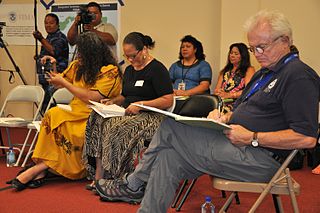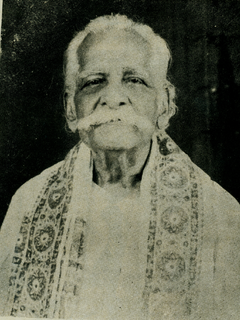
Industrial and organizational psychology, an applied discipline within psychology, is the science of human behavior in the workplace. Depending on the country or region of the world, I-O psychology is also known as occupational psychology in the United Kingdom, organizational psychology in Australia and New Zealand, and work and organizational (WO) psychology throughout Europe and Brazil. Industrial, work, and organizational psychology (IWO) psychology is the broader, more global term for the science and profession.

John Dewey was an American philosopher, psychologist, and educational reformer whose ideas have been influential in education and social reform. He was one of the most prominent American scholars in the first half of the twentieth century.

Public relations (PR) is the practice of managing and disseminating information from an individual or an organization to the public in order to affect their public perception. Public relations (PR) and publicity differ in that PR is controlled internally, whereas publicity is not controlled and contributed by external parties. Public relations may include an organization or individual gaining exposure to their audiences using topics of public interest and news items that do not require direct payment. The exposure mostly is media-based. This differentiates it from advertising as a form of marketing communications. Public relations aims to create or obtain coverage for clients for free, also known as earned media, rather than paying for marketing or advertising also known as paid media. But in the early 21st century, advertising is also a part of broader PR activities.

The Potsdam Declaration, or the Proclamation Defining Terms for Japanese Surrender, was a statement that called for the surrender of all Japanese armed forces during World War II. On July 26, 1945, United States President Harry S. Truman, United Kingdom Prime Minister Winston Churchill, and Chairman of China Chiang Kai-shek issued the document, which outlined the terms of surrender for the Empire of Japan, as agreed upon at the Potsdam Conference. The ultimatum stated that, if Japan did not surrender, it would face "prompt and utter destruction."

Self-help or self-improvement is a self-guided improvement—economically, intellectually, or emotionally—often with a substantial psychological basis.

The Three Represents or the important thought of Three Represents is a guiding socio-political theory within China credited to then-General Secretary of the Chinese Communist Party (CCP), Jiang Zemin, which was ratified at the Sixteenth Party Congress in 2002. The Three Represents defines the role of the CCP; it stresses that the party must always represent the requirements for developing China's advanced productive forces, the orientation of China's advanced culture and the fundamental interests of the overwhelming majority of the Chinese people. Jiang Zemin first introduced his theory on 25 February 2000 while on an inspection tour in Maoming, Guangdong province.

In social science and politics, power is the social production of an effect that determines the capacities, actions, beliefs, or conduct of actors. Power does not exclusively refer to the threat or use of force (coercion) by one actor against another, but may also be exerted through diffuse means. Power may also take structural forms, as it orders actors in relation to one another, and discursive forms, as categories and language may lend legitimacy to some behaviors and groups over others.

The Adler Planetarium is a public museum dedicated to the study of astronomy and astrophysics. It was founded in 1930 by Chicago business leader Max Adler. Located on the northeastern tip of Northerly Island on Lake Michigan in Chicago, Illinois, the Adler was the first planetarium in the United States and is part of Chicago's Museum Campus, which includes the John G. Shedd Aquarium and The Field Museum. The Adler's mission is to inspire exploration and understanding of the universe.

Oliver Napoleon Hill was an American self-help author. He is best known for his book Think and Grow Rich (1937), which is among the 10 best-selling self-help books of all time. Hill's works insisted that fervid expectations are essential to improving one's life. Most of his books were promoted as expounding principles to achieve "success".

Torsten Nils Wiesel is a Swedish neurophysiologist. With David H. Hubel, he received the 1981 Nobel Prize in Physiology or Medicine, for their discoveries concerning information processing in the visual system; the prize was shared with Roger W. Sperry for his independent research on the cerebral hemispheres.

Eze is an Igbo word which means King. Such words as Igwe and Obi, plus others, are used by Igbo people as titles of respect and homage to the Eze. Igwe is derived from the Igbo word Igwekala or Eluigwekala, "the sky or heaven above the sky is higher or bigger than land", implying that the Eze is a higher servant of the people. Obi usually refers to the centre building for receiving visitors within an Igbo leader's or man's homestead. When used as a title of respect for the Eze, Obi implies: "the one who sits in the throne house or heart of the Kingdom."
In diplomacy, an attaché is a person who is assigned to the diplomatic or administrative staff of a higher placed person or another service or agency. Although a loanword from French, in English the word is not modified according to gender.

Satyan Gangaram Pitroda also known as Sam Pitroda is an Indian inventor, telecommunication engineer and entrepreneur. He was born in Titlagarh in the eastern Indian state of Odisha to a Gujarati family. He is popularly known as the Father of India's Computer and IT Revolution as he helped Prime Minister Rajiv Gandhi in bringing computerization as an advisor to the PM. He was also an advisor to the PM during Dr. Manmohan Singh's tenure.

Khalsa College is a historic educational institution in the northern Indian city of Amritsar in the state of Punjab, India. Founded in 1892, the sprawling 300-acre (1.2 km2) campus is located about eight kilometers from the city-center on the Amritsar-Lahore highway, adjoining Guru Nanak Dev University campus, to which Khalsa College is academically affiliated.
A medical science liaison (MSL) is a healthcare consulting professional who is employed by pharmaceutical, biotechnology, medical device, and managed care companies. Other job titles for medical science liaisons may include medical liaisons, clinical science liaisons, medical science managers, regional medical scientists, and regional medical directors.

Charles N. ("Chip") Kahn III is the president and chief executive officer of the Federation of American Hospitals (FAH), whose member companies own nearly 20 percent of all American hospital beds. Kahn and the FAH represent their members on health policy issues like health care reform and hospital care quality improvement.

Iyyanki Venkata Ramanayya or Ayyanki Venkata Ramanaiah has been called the "Architect of the Public Library Movement in India". He is the first Indian to be awarded the Kaula Gold Medal. Through his career as an influential library leader, Ramanayya was seen as a respected peer and mentor by S. R. Ranganathan.
Anju Bhargava, a management consultant, was a member of President Barack Obama's inaugural Advisory Council on Faith Based and Neighborhood Partnership.

Science Buddies, formerly the Kenneth Lafferty Hess Family Charitable Foundation, is a non-profit organization that provides a website of free science project productivity tools and mentoring to support K-12 students, especially for science fairs. Founded in 2001 by engineer and high-tech businessman, Kenneth Hess, Science Buddies features STEM content and services to assist students and educators. Since its founding, it has expanded its original mission to provide teacher resources targeted for classroom and science fair use.
MobileCoin is a peer-to-peer cryptocurrency developed by MobileCoin Inc., which was founded in 2017 by Josh Goldbard and Shane Glynn. It focuses on transactional anonymity (fungibility), ease of use, transaction speed, low environmental impact and low fees. MobileCoin's mechanics build on Stellar and Monero, using CryptoNote alongside zero-knowledge proofs to hide details of users' transactions.















